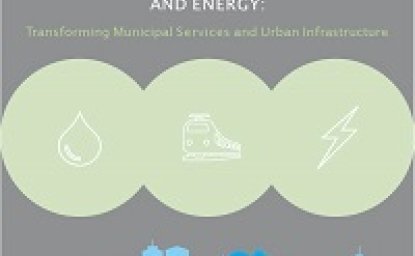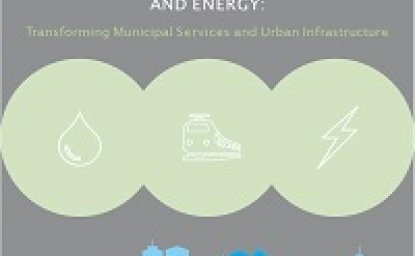On September 15, the Wilson Center’s Urban Sustainability Lab gathered a panel of urban experts to discuss “cross border” links in policy, technology, and practice that can help cities develop long-term integrated approaches to address urban challenges. Blair Ruble, Vice President for Programs and Director of the Urban Sustainability Lab, opened the discussion, making the case that new technologies offer a platform for moving governance forward and fostering sustainable change in the urban sphere.
Gordon Feller, Director in the Office of the Executive Vice President of Cisco Systems and Wilson Center Global Fellow, detailed the opportunities found in smart city approaches in the wake of aging urban infrastructure. Collecting data and utilizing sensors can give authorities valuable information to adjust and better plan for infrastructure investments for the future while conserving valuable energy and resources. However, service efficiency may not be the greatest benefit offered by big data. Transforming how, and from whom, we collect information is an opportunity to change the way authorities and citizens view and interact with each other, shifting the role of citizens from infrastructure consumers to infrastructure owners.
Scott Mauvais, Director of Civic Innovation at Microsoft, explained how making data collected by the city available to the public can enhance transparency, building trust between citizens and authorities. As financing options, data management, workforce development, and politics present notable challenges, trust and coordination are essential to transforming urban infrastructure.
Scott Stallard, Director of Smart Analytics and Smart Integrated Infrastructure at Black & Veatch, questioned whether public-private partnerships and strategies to enhance efficiency offer sufficient vision to facilitate a transformative change in urban infrastructure. As we address urban problems, the challenge will be to balance different values such as security and sustainability as big data and technology seep into the framework of city infrastructure systems, concluded Stallard.
It’s crucial that the process of governance puts people first in the development of policy, added Melanie Nutter, Principal at Nutter Consulting and Former Director of the San Francisco Department of Environment. Being a smart city is not just about emerging engineering and infrastructure but about culture and engagement, and motivated leadership, Nutter explained.




